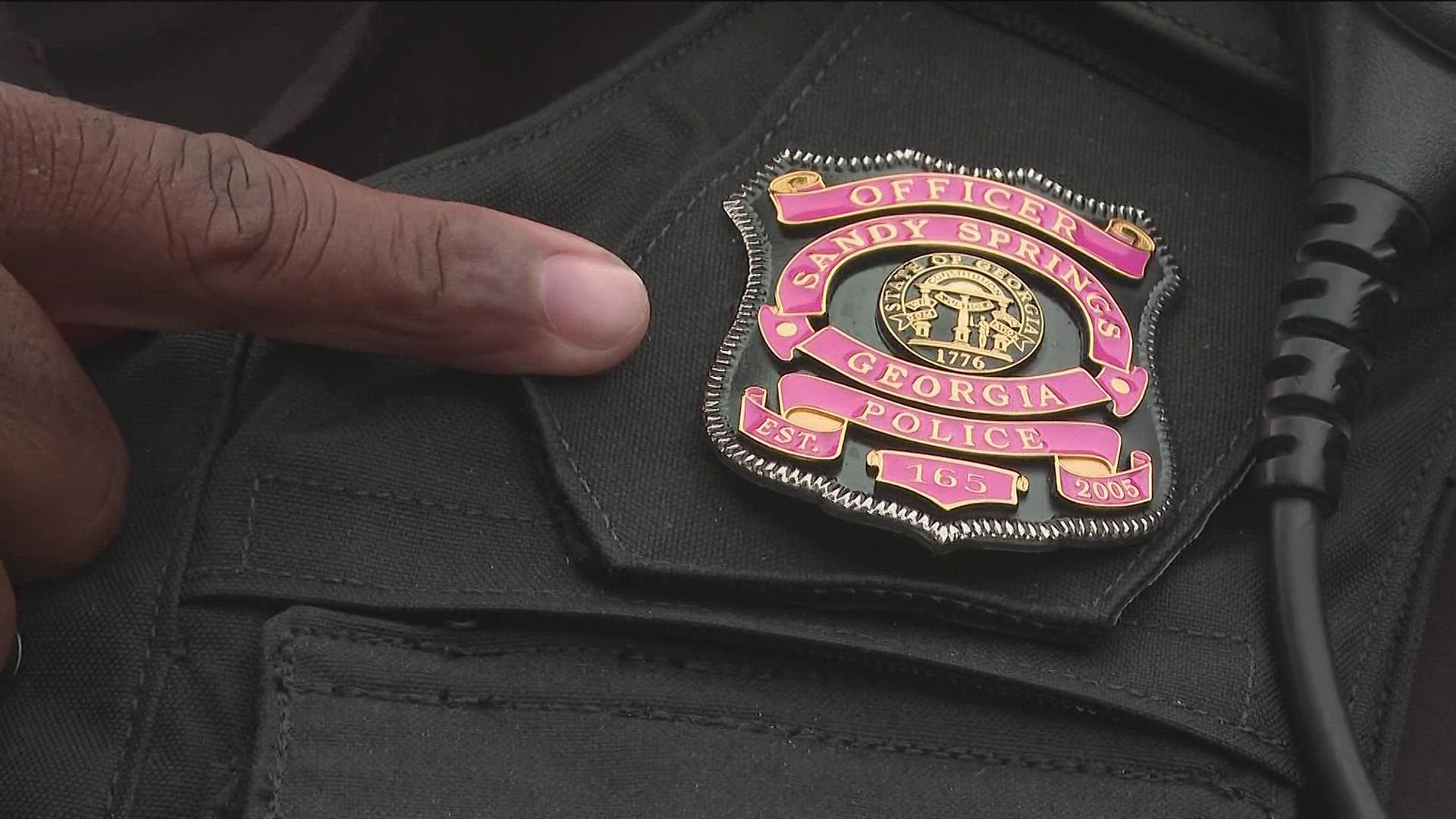SANDY SPRINGS, Ga. — Law enforcement agencies across the country are showing support for breast cancer survivors and loved ones lost to the disease. Whether it's by designing cars painted with pink ribbons, wearing pink T-shirts or donning a custom pink badge, some officers are wearing pink for a special reason.
Officer James Graham joined the Sandy Springs Police Department in 2006. He felt the calling as a teenager to go into law enforcement, but nothing could have prepared him for the call that his wife was diagnosed with breast cancer.
"I didn't think much of it, because people beat it," Graham said. "We figured we'd get ready for the fight, and she had a bad one. She had about five years of fighting before we lost her."
Tiffany Graham was first diagnosed when she was 35 years old. There's not a high likelihood her daughter could get breast cancer as well, because Tiffany had the BRCA gene. A mutation of the gene raises the chance breast cancer could form.
"On the streets, I could take care of that," James Graham said. "I never had an issue. I didn't think this would come up. It wouldn't happen to me kind of thing. Then when it did, and I was so helpless, it just threw me on the back of my heels."
Officer Brian Crisp, who's been with Sandy Springs Police for over 13 years, had an aunt and grandmother, who were both diagnosed with breast cancer. While his aunt beat the disease, his grandmother passed away.
"My grandmother, she had a couple appointments where she went to the doctor, but she was never really diagnosed until she was admitted to the hospital," Crisp said. "Once she was admitted, she never came home after that.”
Crisp, Graham and nearly 40 other Sandy Springs police officers bought custom pink badges to show support for breast cancer awareness month. The badges cost about $108, and 10 percent of proceeds from the sales go to the National Breast Cancer Foundation, according to Sgt. Michael McGinnis.
11Alive medical correspondent Dr. Sujatha Reddy, a gynecologist, said about 300,000 people will be diagnosed with breast cancer this year nationwide. According to the American Cancer Society, breast cancer is the second leading cancerous cause of death in women. Reddy urged people to research their family history and learn more about the disease she said impacted everyone in some way.
"We know being active, being at a healthy weight can decrease your risk of getting breast cancer," Reddy said. "Limiting alcohol consumption, not smoking, those also can decrease your risk of getting breast cancer.”
Reddy suggested that women look for changes in the skin, the size of the breast, and any odd feeling. They should go to their healthcare provider to have anything abnormal evaluated. Reddy said advancements in treatments and research allowed more women to live with breast cancer somewhat comfortably, and she noted death rates had fallen in women with the disease.
"Virtually everyone must know somebody or has a family member who has breast cancer," Reddy said. "And while a family history puts you at higher risk, there are more new cases of breast cases in women without a family history every year than women with one."
"Get that yearly mammogram. That has helped us diagnose breast cancer at an earlier stage, and we do best treating all cancers if we find it quickly and at an earlier stage than a later stage when it's much harder to treat," she said.
Graham, meantime, is moving forward despite tragedy. He has remarried, and he and his daughter typically eat dinner, go to a baseball game and visit his first wife's grave to honor her memory.
"I didn't think I'd lose her, so it's important now to have family and pay attention to them, spend your time with them," Graham said. "Don't be so caught up in the things around you."

